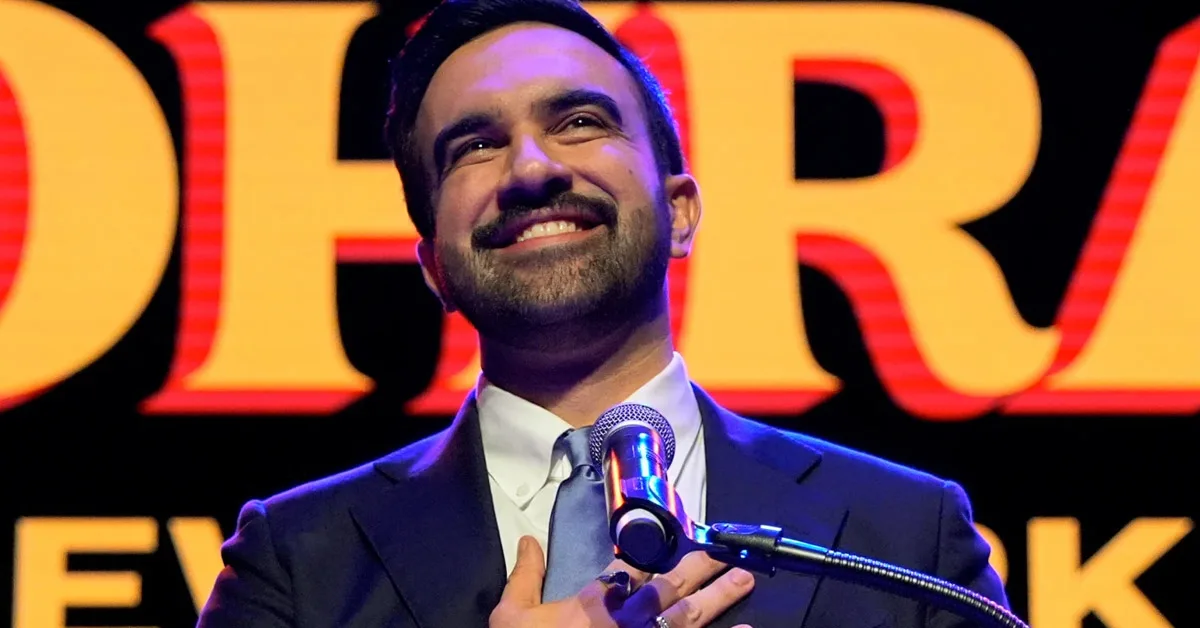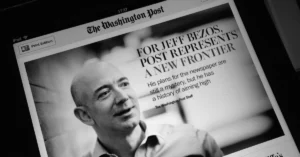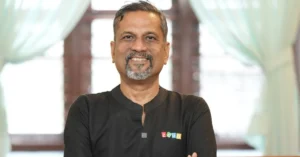When Zohran Mamdani walked onto the stage on election night, the crowd in Queens erupted into chants of “Our city, our mayor!” For many South Asians, Muslims, and first-generation immigrants, the moment was more than political – it was deeply personal.
Mamdani’s projected victory as New York City’s first Muslim and South Asian mayor marks a historic milestone in America’s evolving political landscape. The 34-year-old democratic socialist, born in Uganda to Indian parents and raised in the U.S. since age seven, has emerged as both a symbol of representation and a lightning rod in an increasingly divided nation.
A breakthrough moment for representation
“It is going to make a big difference for our people — South Indians, Muslims, people who are immigrants like me. They will also think … there’s a place for them in this country,” said Asif Mahmood, a Democratic fundraiser who previously supported Hillary Clinton and Kamala Harris, speaking to ABC News ahead of election day.
For decades, political participation among South Asian and Arab Muslim communities in the U.S. lagged behind other groups. But Mamdani’s campaign seems to have changed that. According to research firm L2, South Asian voter turnout in the 2025 NYC primary surged nearly 40% compared to 2021 – a signal that a new generation is stepping into the political arena.
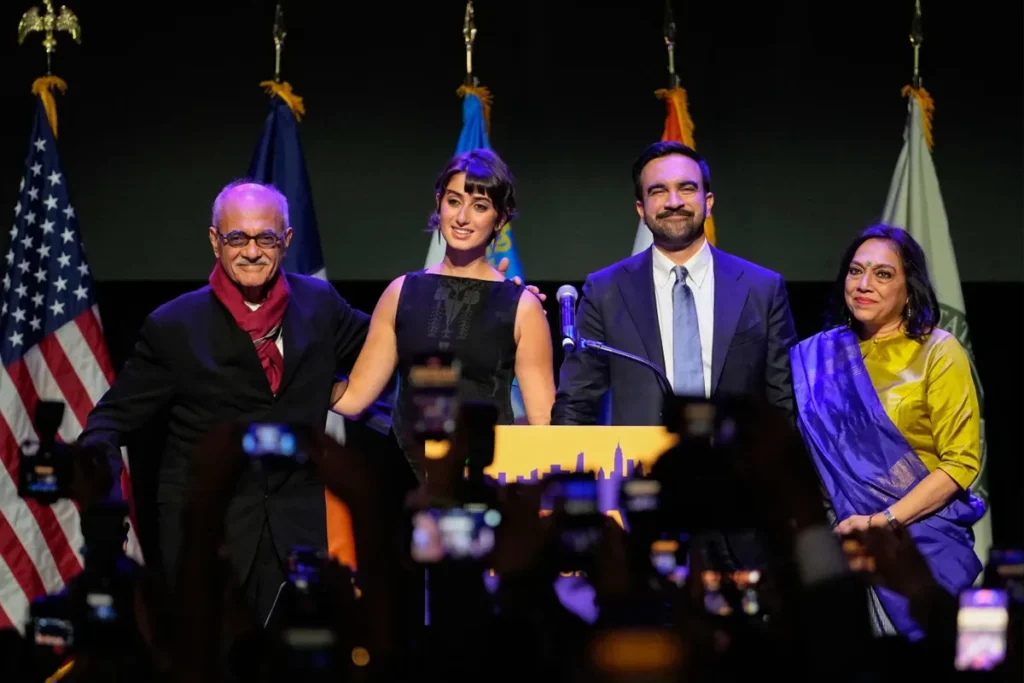
“This campaign has awakened something powerful in New York’s South Asian and Muslim communities — a sense of visibility, pride, and political belonging that’s been denied for generations,” said Dora Pekec, a spokesperson for Mamdani.
The identity factor and the backlash
Mamdani’s victory didn’t come without resistance. Opponents often fixated on his background, a Muslim of Indian descent, naturalized only in 2018 to paint him as an outsider. But Mamdani leaned into that identity, making inclusion and equity core themes of his campaign.
His progressive platform, which promises affordable housing, expanded healthcare access, and sanctuary protections for immigrants and LGBTQ+ New Yorkers, resonated across boroughs long considered politically moderate.
Still, the campaign revealed how powerfully identity politics shapes modern elections. “South Asians and Muslims are definitely engaging more,” Mahmood added, though he admitted he was “real skeptical” whether this newfound enthusiasm will sustain beyond Mamdani’s tenure.
Trump vs. Mamdani: The showdown begins
As President Trump begins his second term, his relationship with New York City’s new mayor is already combustible. Publicly, Trump has derided Mamdani as “an extremist” and “a communist,” while privately describing him as a “slick” and “talented politician,” according to reports shared with The New York Times.
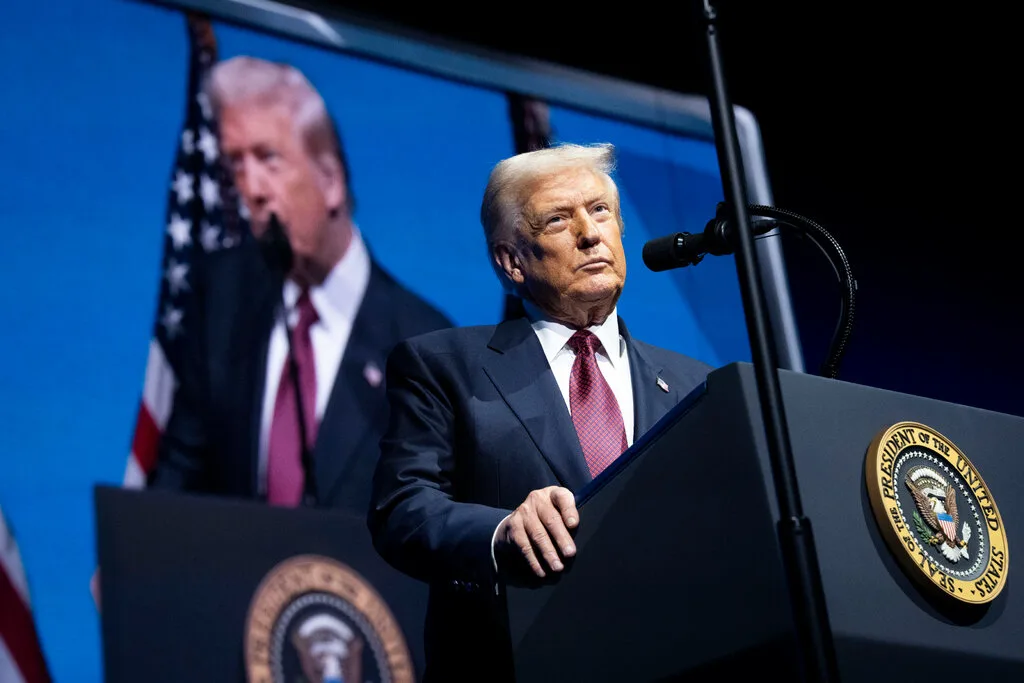
The president’s aides acknowledge that Mamdani and New York City are likely to become new targets of his rhetoric – even as Trump admits he wants the city to succeed for financial reasons tied to his real estate interests.
Mr. Mamdani, meanwhile, appears unfazed. In his fiery victory speech, he addressed Trump directly:
“So Donald Trump, since I know you’re watching, I have four words for you – turn the volume up.”
The White House later confirmed that Trump was indeed watching.
A mayor ready for the fight
If the new mayor’s words sounded defiant, his plans are even bolder. Mamdani has vowed to hire 200 additional lawyers to help the city “stand up to presidential excess.” He has also promised to protect immigrant communities, defend LGBTQ+ rights, and ensure that New York remains a sanctuary city — even as the federal government threatens funding cuts.
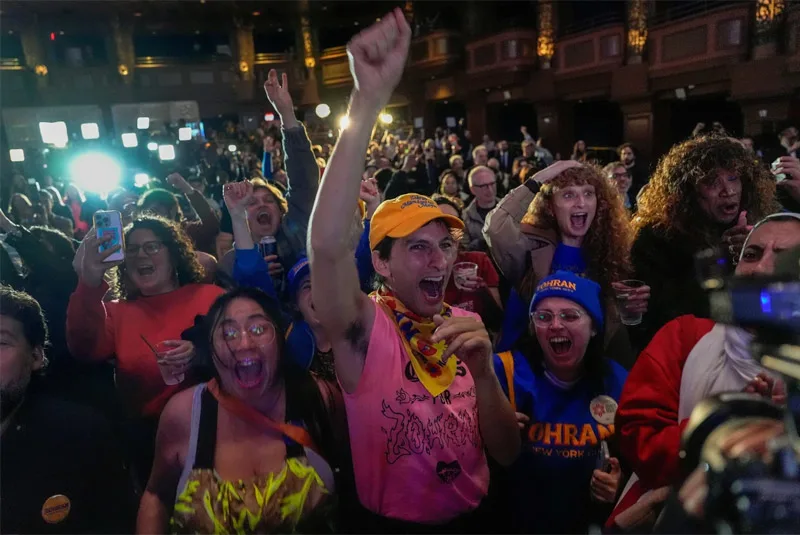
“So hear me, President Trump, when I say this: To get to any of us, you will have to get through all of us,” Mamdani declared to roaring applause.
But not everyone supports his confrontational tone. Democratic strategist David Axelrod, a longtime adviser to Barack Obama, cautioned: “I don’t think that getting into a trolling contest with Trump is a very valuable thing to do. But standing firm when he is essentially waging a war on the city — that, I think, is required.”
What Mamdani’s rise means for America
Beyond New York, Mamdani’s victory signals a larger generational and cultural shift. His ascent reflects how immigrant-rooted communities, once politically quiet, are now shaping America’s progressive agenda. It also underscores how identity, race, and ideology intersect in the nation’s biggest cities.
Whether Mamdani can balance progressive ideals with pragmatic governance remains to be seen. But one thing is clear: his win has already redrawn the boundaries of political imagination for millions who rarely saw themselves reflected in power.
As New York prepares for its new mayor, and a potential standoff with Washington, one question hangs over the city:
Can Zohran Mamdani’s promise of inclusion survive the pressures of power in Trump’s America?
